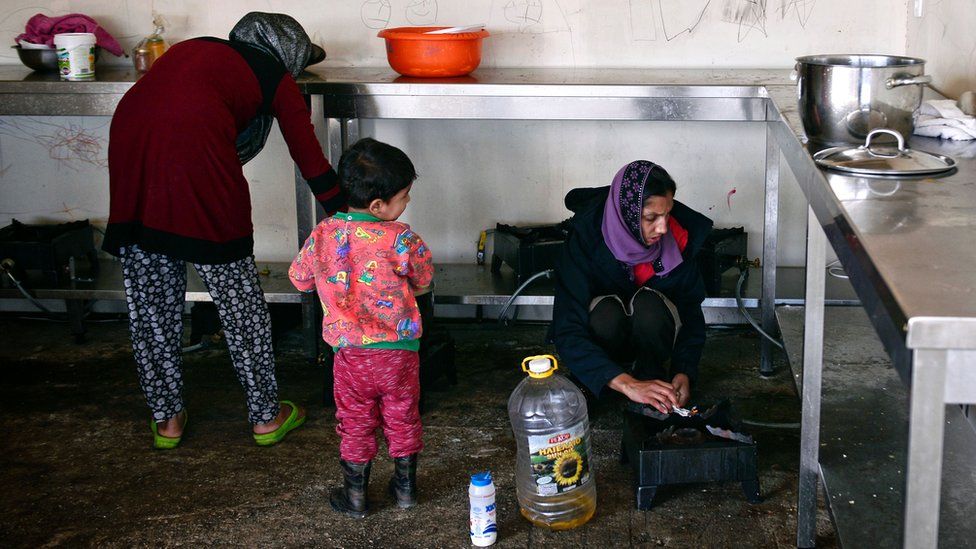Germany to resume sending migrants back to Greece
- Published

Germany is set to send asylum seekers back to Greece, although reception centres there are overcrowded and there is a huge backlog in processing claims.
Germany had halted such returns under a 2011 ruling by its Constitutional Court. But it can send migrants back under the EU's Dublin Convention.
That convention says an asylum claim should be processed in the country where a migrant first entered the EU.
A Greek minister and German officials told ARD TV about the change of policy.
Greek Migration Minister Ioannis Mouzalas said Greece had agreed to take some asylum seekers back in a goodwill gesture, as there had been "pressure" from some EU countries to do so.
The German interior ministry told the German broadcaster that by the end of July it had asked Greece to take back 392 asylum seekers.
According to the report, the transfers to Greece will only affect migrants who arrived in Germany from mid-March 2017.
Continuing pressure
In 2015-2016 Germany took in more than 800,000 migrants and refugees, many of whom had fled war and abuses in Afghanistan, Iraq and Syria.
At the time Greece, struggling with meagre resources because of its financial crisis, complained that it could not cope with the numbers arriving by boat from Turkey.
Around 1300 migrants have been sent back by Greece to Turkey since the EU deal in 2016
Conditions remain harsh in most of Greece's reception centres, and there have been some riots by migrants frustrated at bureaucratic delays.
The influx to Greece subsided last year after Turkey agreed to help the EU intercept the migrant boats. New border fences in the Balkans also reduced the numbers heading to Central Europe.
This year the biggest flows have been to Italy, across the Mediterranean from North Africa.
Most migrants hoping to settle in the EU arrive in Greece and Italy, and both countries have urged their EU partners to help ease the pressure.
But an EU plan to move 160,000 refugees from Greece and Italy to other parts of the EU is dogged by delays and opposition.
The European Commission said just 25,438 had been relocated as of 4 August.
A note on terminology: The BBC uses the term migrant to refer to all people on the move who have yet to complete the legal process of claiming asylum. This group includes people fleeing war-torn countries such as Syria, who are likely to be granted refugee status, as well as people who are seeking jobs and better lives, who governments are likely to rule are economic migrants.
- Published6 August 2017